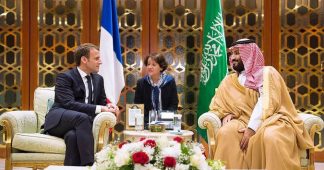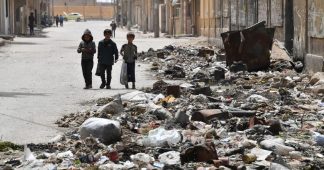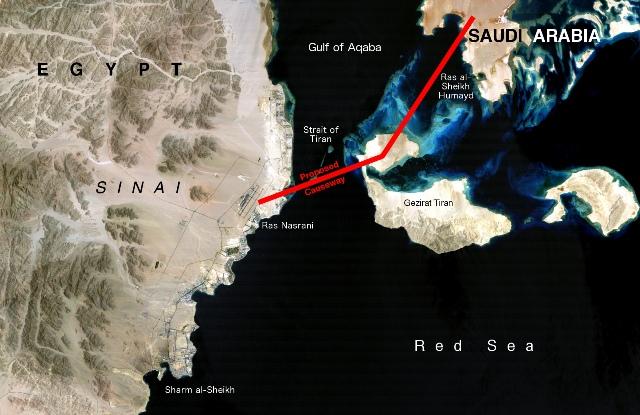The Saudis may be holding the Lebanese Prime Minister hostage but their apparent plan to topple the Beirut government has gloriously backfired. Far from breaking up the cabinet and throwing Hezbollah’s ministers to the wolves, the Lebanese nation has suddenly woken up to what it’s like to be united – against the Saudis. The Lebanese government has announced that it does not accept the resignation statement which Saad Hariri was obliged to make in Riyadh, and overnight hashtags have appeared on several Beirut streets saying “kul na Saad” – “We are all Saad”. Even the Sunni Muslims of Lebanon are furious at their Sunni counterparts in Saudi Arabia.
President Macron of France was first off the mark by detouring into Riyadh on his way to Dubai to ask 32-year-old Crown Prince Mohamed bin Salman what on earth he was doing. Almost the entire two-hour meeting was taken up with why and for what Hariri has been detained – or constrained, or kidnapped or held hostage or treated as an honoured guest of Saudi Arabia (take your pick). For the Lebanese government – and for many tens of thousands of Lebanese – the Saudi decision to present Hariri with a resignation letter to read on the Arabia television channel was a national insult.
The greatest fear in little Lebanon now is that the Saudis, having told their citizens in Beirut to leave the country – there are in fact very few here – will demand that more than 200,000 Lebanese citizens in the Gulf leave Saudi Arabia. These are mainly middle-management people in banks and government, and Saudi Arabia could scarcely do without them. But such an order would have a grave economic effect on Lebanon. The Prime Minister’s “captivity” – albeit luxurious, since he is at home with his wife and children – has prompted customers to withdraw hundreds of thousands of dollars from his BankMed in Beirut.
US, British, EU and French diplomats have been allowed to visit Hariri, but former French President Nicolas Sarkozy was refused a visit when he was in Riyadh on the grounds that this was a “purely internal Saudi matter” – which it clearly is not. To have Saudi officials now trying to dictate the make-up of another Lebanese government suggests that they want to take on the role played out for decades by pre-civil war Syria. The Crown Prince may think he is as powerful as Hafez el-Assad used to be. But the Lebanese do not want to be tutored again.
Hariri’s next visitor is likely to be the Lebanese Catholic Maronite Patriarch Beshara Rai, who is due in Saudi Arabia on an official visit on Monday. Rai is an ambitious and unyielding cleric who has apparently been told he can see Hariri – though why the Saudis have the right to decide if a Lebanese patriarch can meet his own prime minister remains one of the Kingdom’s current mysteries. Macron apparently called Donald Trump in China and asked him to phone the Crown Prince prior to his arrival in Riyadh. We do not know what Trump said.
But he has already blundered with his usual laziness into tweeting his support for the Crown Prince. Of the princes, ex-ministers and officials under house arrest for alleged corruption, he said that “some of those they are harshly (sic) treating have been ‘milking’ their country for years!” But Trump obviously did not know – or care – that one of those detained princes, al-Waleed bin Talal, is an American citizen. Thus has the US President potentially accused one of his own citizens of corruption, words which might help to imprison him.
However, the Department of Home Truths – an institution I regularly visit when writing about the Middle East – would suggest that the Hezbollah are not guiltless in this little drama. They deeply angered Hariri earlier this year when they staged a press trip to southern Lebanon to show journalists armed and uniformed Hezbollah fighters in the UN peacekeepers’ zone along the Israeli border. And some of the speeches made recently by the group’s chairman, Sayed Hassan Nasrallah, gave the impression that he thought he was himself the president of Lebanon – the real job is held by ex-General and now President Michel Aoun – or even the prime minister.
And now one more small touch to add to the slightly grim moment of Hariri’s detention just under a week ago. The Lebanese Prime Minister – for thus we shall still call him since he was given his resignation statement to read – wears his very expensive and smart watch on his right wrist. And when he read that statement, the watch was gone. Just as his mobile phone and those of his bodyguards had been taken when his plane arrived in Riyadh last week. Hariri can use his watch to record or even make calls. But when, shortly afterwards, he was filmed meeting King Salman, the watch was back on his wrist. No problem now, it seemed. After all, he had by then resigned.











